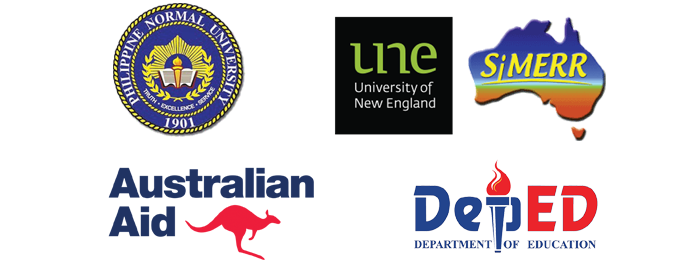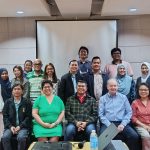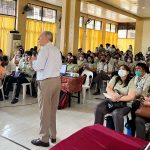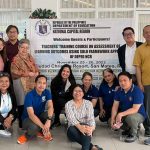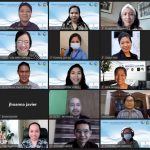INSIGHTS: Teachers share key takeaways from RCTQ-facilitated SOLO workshops
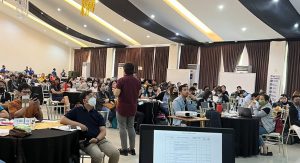 In November 2022, RCTQ conducted a series of workshops that would help teachers in the National Capital Region assess learning outcomes using the Structure of Observed Learning Outcomes (SOLO) framework. The activity was part of RCTQ’s technical assistance for the analysis of DepEd-NCR’s Learning Assurance and Monitoring and Progress (LAMP) Year 1 and 2 test items; and the design, development, validation, and finalization of new test items for the region’s LAMP Year 3.
In November 2022, RCTQ conducted a series of workshops that would help teachers in the National Capital Region assess learning outcomes using the Structure of Observed Learning Outcomes (SOLO) framework. The activity was part of RCTQ’s technical assistance for the analysis of DepEd-NCR’s Learning Assurance and Monitoring and Progress (LAMP) Year 1 and 2 test items; and the design, development, validation, and finalization of new test items for the region’s LAMP Year 3.
We asked some workshop participants who are LAMP test item writers on their key takeaways from the SOLO workshops, and they shared the following insights.
The SOLO workshop enlightened us more in assessing our students’ learning outcomes and in understanding their cognitive development better. It gave us the opportunity to look critically at their performances rather than at our biases or irrational judgment. It provided us a better view of assessing them and reminded us that assessment should be based on structural complexity means relevant to the level or capacity of our student’s thinking and that allows them to think beyond the box.
Bernardo S. Sevilla
Head Teacher III
Parada National High School, Valenzuela City
Attending this seminar enhanced my skills as a teacher in crafting assessment test that help assess and identify the level of learner’s understanding. Through the SOLO workshop, I developed more detailed and standardized assessments that improve learners’ quality of learning in the classroom. It created an avenue to identify learners’ level of understating so that the best intervention may be extended to them to meet their actual needs. the SOLO workshop helped me become mindful and focused in designing and developing assessment tests that promote deep learning and critical thinking.
Gina B. Valdez
Master Teacher I
Navotas National High School, Navotas City
The SOLO framework taught us to measure the readiness of students in moving on to a higher or more difficult level of learning. When I conduct a lesson review and ask an open ended question, the SOLO framework guides me in determining the quality of the students’ responses. The students may be just mere “kabisote” and just memorize terminologies (Unistructural and Multistructural) or they can relate what they learned to other disciplines or to their own experiences (Relational).
Edelito G. Villamor
Master Teacher I
Macario B. Asistio Sr. High School – Unit I, Caloocan City
My initial assumption was that the SOLO Framework could only be applied to the development of alternatives for multiple-choice tests that rated the response’s quality. Our most recent training included instruction on how to create a stem or inquiry using SOLO. Also, I discovered how crucial both higher-order and lower-order thinking skills are. In fact, I’m utilizing SOLO for my 7th grade summative exam in Science. It aids and prepares my students to respond to questions on our division’s quarterly exam.
The choice of a teaching technique is just as crucial as the evaluation of student learning. My ability to create test items has improved as a result of the training I took. Indeed, students can become more critical when answering assessments if all teachers learn how to construct tests using the solo framework.
Maria Teresa G. Atanacio
Teacher III
Valenzuela City School of Mathematics and Science, Valenzuela City
The workshop helped me in assessing the different learning capabilities of my students and their level of understanding in solving specific questions. After assessing the level of understanding of students, I can easily create and make an intervention program that is suited to their needs. It will be easy for us teachers to create activities and worksheets that will help and deepen the understanding of our students regarding a particular competency.
Joerey F. Siyang
Master Teacher 1
Dampalit Elementary School 1, Malabon City
I can use this framework to assess whether or not my students are along the continuum of learning from surface to deep thinking. With the SOLO taxonomy, it could enable my students to draw connections that are particularly necessary to the application of skill development. Similar to acquiring a new skill, my learner’s initial attempts at targeted thinking skills are frequently unsuccessful, but by consistently applying the skill, my learners can improve. My students would be able to understand the reasons for everything they do and realize that improvements are due to their own strategies. It could help my students to reflect meaningfully on what the next levels in their learning are. It offers a feedforward and feedback for the learning outcomes.
Shydney A. Bayanito
Teacher III
Padre Burgos Elementary School, Pasay City
(by RCTQ Comms with Cristy Mendoza)
https://www.rctq.ph/?p=4143FeatureNational Capital Region,SOLO

